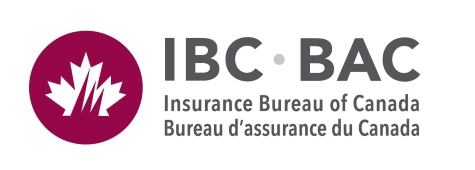IBC offers tips to protect Atlantic Canadians and their property during instances of severe weather Français
HALIFAX, May 5, 2014 /CNW/ - Severe weather – heavy rainfall, flooding, hail damage, storm surges, tornadoes and even hurricanes – the season starts June 1 – can strike suddenly and with devastating consequences for communities and property.
As Emergency Preparedness Week begins, Insurance Bureau of Canada (IBC) offers suggestions for how Atlantic Canadians can protect themselves, their homes and businesses from the effects of severe weather, which is on the rise across Canada.
Over the past 10 years, the insurance industry has seen an increase in the intensity, duration and frequency of storms that has resulted in a staggering $396 million worth of insurance losses in the Atlantic region. Severe weather is jeopardizing lives, property and livelihoods. Losses from natural catastrophes in Canada have been rising with claim payouts doubling every five to ten years since the 1980s.
"From being on the front lines when disaster strikes, the insurance industry understands the costly and devastating impact of severe weather on Canadians," says Amanda Dean, IBC's Vice-President, Atlantic region. "These losses show only part of the picture. The human toll can be devastating for many families."
However, individuals and families can prepare themselves against their vulnerability to severe storms by taking some simple precautions before disaster strikes," she adds.
IBC suggests these helpful severe weather preparedness tips:
Here are precautions to take immediately:
- Assemble an emergency kit – flashlight and batteries, battery-operated radio etc.
- Move valuable items from your basement to higher levels in your home.
- Clear eavestroughs and downspouts – if safe to do so – and direct water away from your home.
- Ask someone to check your property if you are away.
Also take these precautions if you have more time:
- Create an emergency preparedness plan for your family.
- Prepare a detailed home inventory. This can be done as photos or video.
- Install a sump pump and/or sewer backup valve.
- Elevate furnaces, hot water heaters and electrical panels in the basement or relocate them to a higher level.
- Check with your insurance representative to make sure you have appropriate coverage.
"IBC has made adapting to severe weather a priority," says Ms. Dean. "We are spreading the word on the need to update infrastructure, to engage consumers on how to protect themselves and their properties, and to work with provincial and municipal governments to help develop, promote and implement adaptation measures," she adds.
If you have questions or need help with your home, car or business insurance, contact IBC's Consumer Information Centre at 1-800-565-7189 ext. 228, Monday to Friday 8:30 a.m. – 4:30 p.m.
About Insurance Bureau of Canada
Insurance Bureau of Canada (IBC) is pleased to celebrate 50 years as a valuable resource for insurance information. Since 1964, IBC has been working with governments across Canada to make our communities safer, championing issues that directly affect Canadians and the property and casualty (P&C) insurance industry. IBC is the national industry association representing Canada's private home, car and business insurers. Its member companies represent 90% of the P&C insurance market in Canada. The P&C insurance industry employs over 118,600 Canadians, pays more than $7 billion in taxes to the federal, provincial and municipal governments, and has a total premium base of $46 billion.
To view media releases and other information, visit the media section of IBC's website at www.ibc.ca. Follow IBC on Twitter @InsuranceBureau or like us on Facebook.
If you require more information, IBC spokespeople are available to discuss the details in this media release.
SOURCE: Insurance Bureau of Canada

To schedule an interview, please contact: Steve Kee, Director, Media & Digital Communications, Insurance Bureau of Canada, (416) 362-2031 X-4387, [email protected]

Share this article